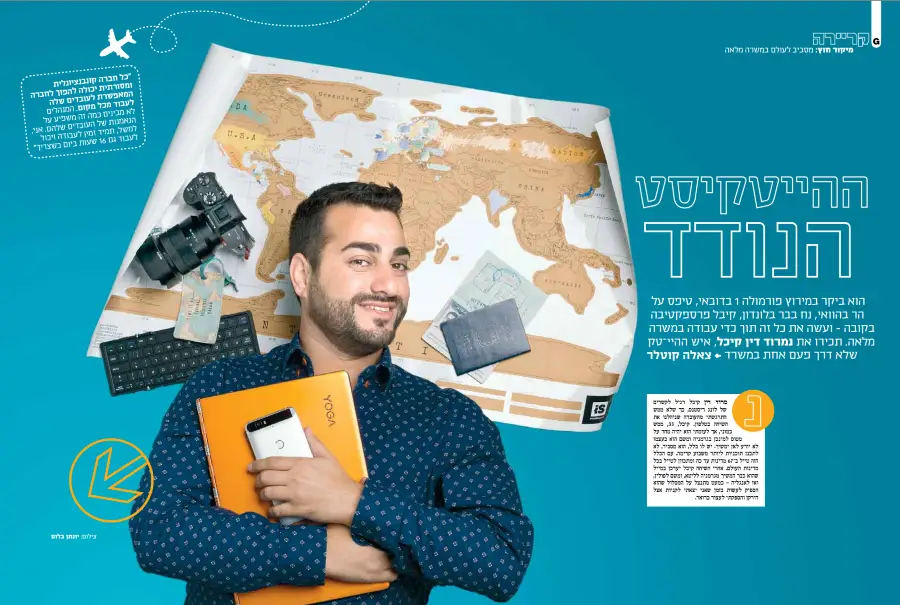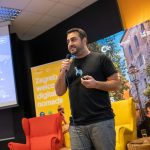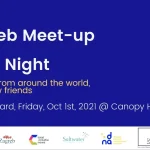We are delighted to welcome Dean Kuchel from Israel to Zagreb Digital Nomad Week. Dean will be delivering a keynote speech on community building, an essential step Croatia will take in its efforts to develop its digital nomad presence. You can register to attend online or in person here.
1. More than 100 countries visited, a digital nomad for years. It sounds like a perfect life! Tell us how it all started. What was the trigger to set you on your path?

Yes, I have visited over 100 countries in 7 years. It is the perfect life and I am living my dream. I don’t think the way I do it is right for everyone, but there are definitely many bonus points, and I have been living a great life on the road for the last 7-8 years.
It all started almost by mistake for me. The most lucrative job you can have is a relocation, to somewhere like the States. Do a few years there, then return to your home country – in my case, Tel Aviv in Israel. I got a job in San Francisco, but after I waited for 2-3 months for the visa, my company asked me to work remotely, which I did.
This is how I met the nomadic lifestyle. I travelled to Taiwan and Japan, then visited a few countries in Europe, all while working remotely. While I was on this journey back in 2014, I started to meet other people enjoying a remote lifestyle. This is where I first met with digital nomads. I discovered a whole new world where I could combine one of my biggest passions – travel – and work.
It is important to step back and note that my mother is a tour guide and has been travelling from an early age. She has been leading groups abroad and around the world. So travel was in my DNA from a very young age, and I always loved to travel. I generally say that I travel for people not places. The world is beautiful but it is the people that make travel special.
When I finally got my work visa, I told my company that it was too late and that I was hooked on this lifestyle and could not return to the office. They answered very simply – you earned it. Remote work can be just as effective, sometimes more so, than being in the office. I showed that I was an effective communicator and team player working anywhere in the world.
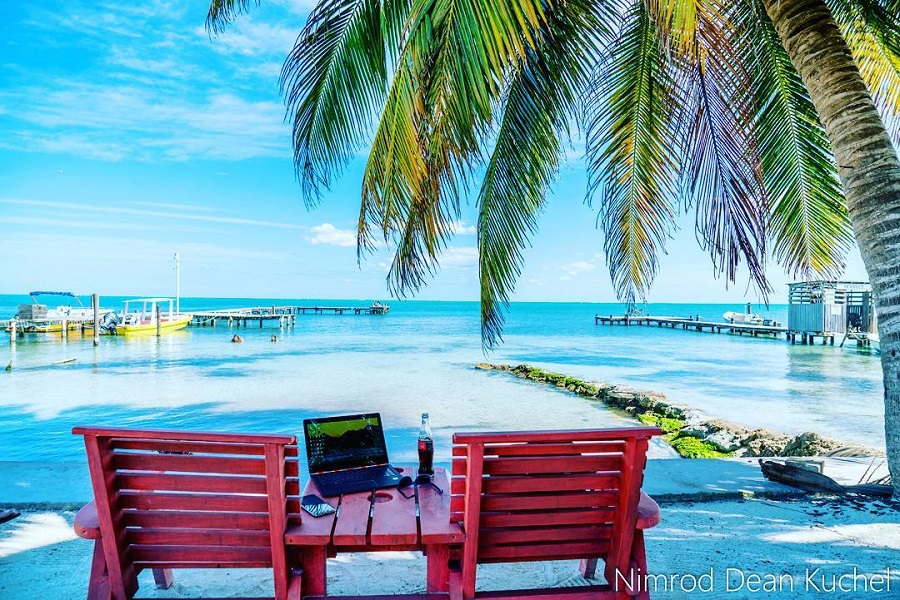
2. Focusing on Europe, where do you think the best places are for digital nomads and why?
There are many, many good countries and hot spots. The highlights would be the Canary Islands and Bansko in Bulgaria. Mostly for the community. Having a like-minded community to connect to which understands you, with people who have made the same life choices as you. It is very supportive and helps each other to grow. Community is key to make a destination lucrative as a digital nomad destination, as happened in the Canary Islands and Bansko over time.
We are seeing beautiful efforts from countries such as Portugal, and of course Croatia, spearheading this change in Europe, allowing nomads to spend time in the country, putting in infrastructure. Events such as Zagreb Digital Nomad Week are great. We are seeing more co-working spaces and more accommodation available on short-term leases.
This broadens the range of countries to visit, and when we mix the basic needs for digital nomads, such as a good WiFi connection, good places to work from, and an affordable cost of living, then we are definitely looking at countries such as Hungary, Poland, Czechia, Bulgaria, Ukraine and Croatia. These are beautiful countries with great culture and good infrastructure. They will be very attractive for nomads in the coming years, and they will benefit greatly from this shift in forces when it comes to where people choose to work from. We will see people leave the States, UK, Germany and other ‘first-world’ economies, and relocating to more affordable places. Those countries welcoming digital nomads will gain a lot form digital nomads, both economically and immersion in the local community.

3. The concept of digital nomad tourism is quite new here, and we are learning about the importance of community. Tell us more about this.
Community is to compensate for what we leave behind, for the sacrifice we make, the family, friends and coleagues. It is a network of people who understand our needs, our choices, our lifestyle. The community doesn’t question us, about why we do things or how we do them. It gives you a sense of belonging be part of something bigger than just yourself, the movement.
4. I have noticed around Croatia that there are a growing number of nomads, but this building of community is not as strong as it could be. Tell us about the importance of community.
Community is of course a key part of life for all of us, not just digital nomads. But it is especially important for digital nomads, many of whom travel solo, but do not want to travel alone. This is where community comes to compensate for lack of family and friends. This is why we see organic communities developing in places like the Canary Islands, Bansko in Bulgaria, Medellin in Colombia, Bali, and Chiang Mail in Thailand.
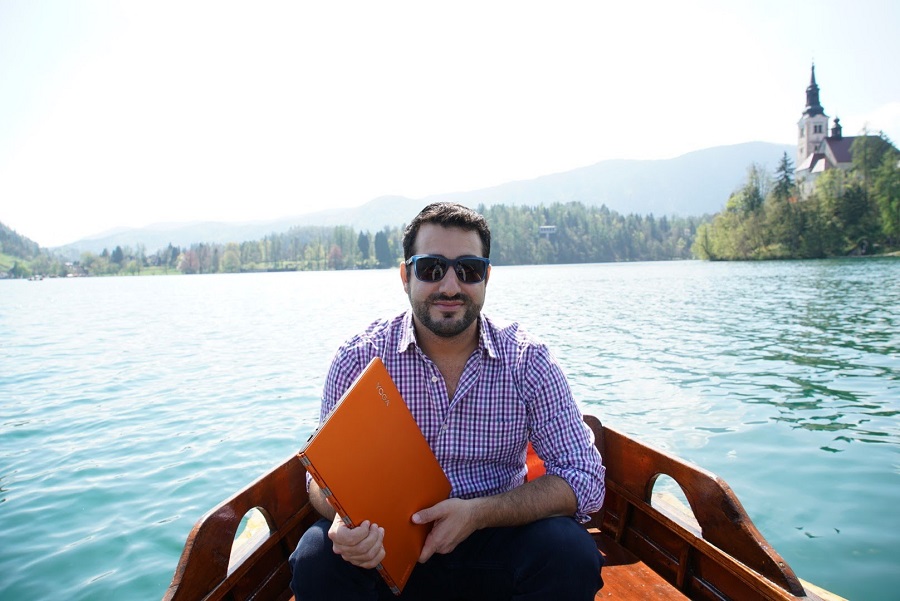
It is this natural need to connect to other people, people often with the same interests and life choices. The community also understands the lifestyle. Sometimes other people look at us and say we are crazy with this life. But a lot of us believe that this lifestyle can work and be sustainable, and when you have a community of people who have made the same life choices and sacrifices, it can be a lot of fun and great way to see the world. We all have our down time, of course, our hearts broken and our bad days, and we need that community to support us. Especially when we cross borders into cultures which are very different from our own. The community makes the transition into new places much easier. There is also the bonus of meeting people who you have already befriended in online communities.
Moving from community to community can be to see the world, but also to be around like-minded people, driven people. For me personally, there is no way I could sustain 7-8 years of travel with no sense of community. I myself run an online community of some 23,000 people, the fourth largest of its kind in the world – Digital Nomads Israel. And I am working on a new global community called Digital Nomad World, with the idea of connecting us digital nomads with each other to exchange ideas, support, and to share all the love and good ideas that we experience.
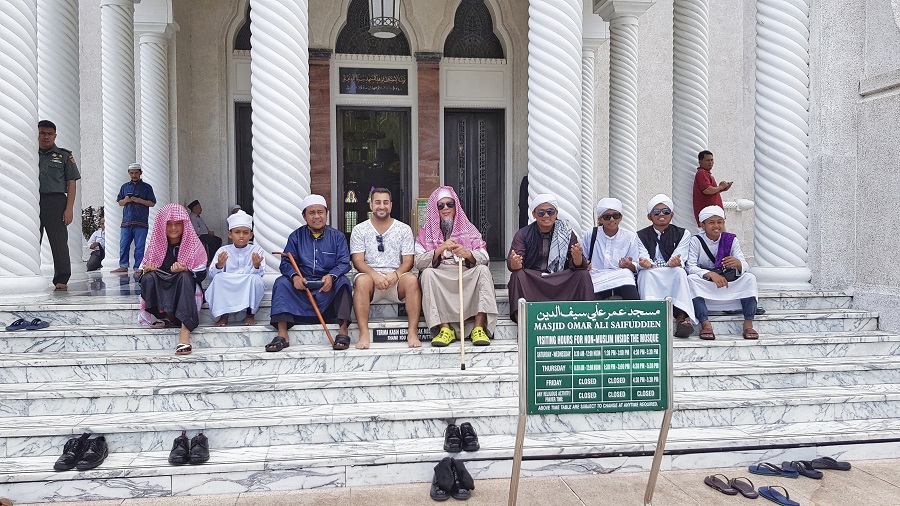
5. If we are looking for a community-building case study, which country and why?
If we talk about community-driven, Bansko in Bulgaria or the Canary Islands are great examples. In both cases, there are individuals like Matthias in Bansko, or Nacho in the Canary Islands. People who put a lot of effort and risk their own money to create co-living and co-working spaces. They put on conferences for digital nomads, and build up community. They are true leaders, and this helps to create these places as hot spots for nomads.
When we look at the authorities, I don’t see enough initiatives. If we look at Estonia and the e-residency, I don’t think this is really geared towards nomads. If we want to focus on nomads, take a look at what Barbados is doing, although the entry price is quite high, as they are targeting higher-earning nomads.
Countries such as Czechia and Georgia and other countries are also opening up, welcoming people who are earning money abroad. I am happy to say that Zagreb right now at the top in terms of action taken, but we also have places like Bali and Thailand.
Bermuda, Barbados, Dubai are all forming visa policies allowing digital nomads to come. Some countries target different audiences, with Barbados targeting high earners, while Georgia is more accepting of all. Georgia will be interesting to follow, and I think it will benefit a lot. It is becoming popular and the community is starting. It is relatively close to Croatia and the two countries could form a nice travel bubble.
And Croatia. It was one of the first to attract nomads with the visa. It will be interesting to follow progress to see people take residency, start forming companies.
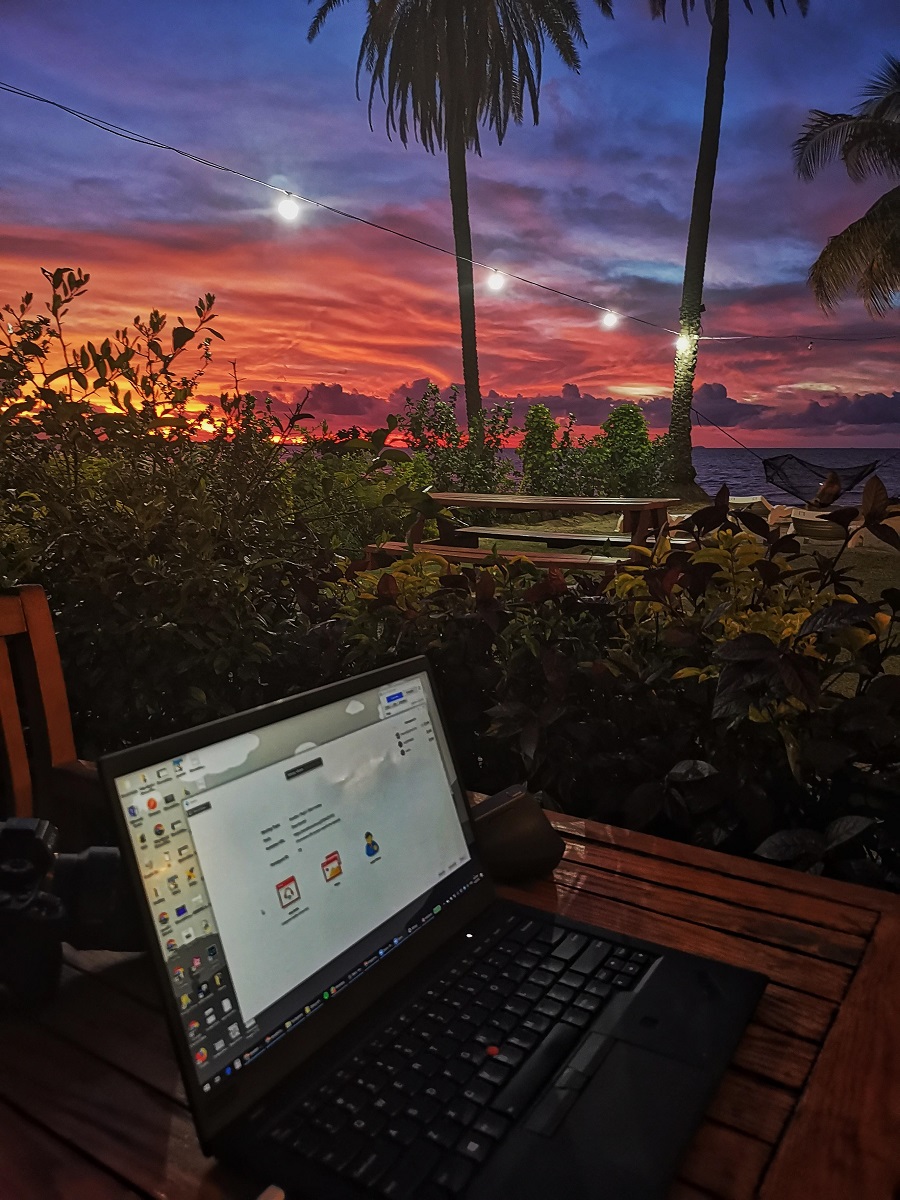
6. How does Croatia rate as a nomad destination in your view, and what should it be doing to raise its profile to digital nomads?
I think Croatia is currently somewhere in the middle at the moment. It has all the great things that nomads are looking for – lifestyle, nature, city life, beautiful see, affordable, history and easy to move around. It has the basic ingredients.
What needs to be added is that community, which will take time. But we are seeing leaders like Tanja from Saltwater Nomads taking this forward. The authorities should continue to stay involved, but Croatia has positioned itself very well. It has great potential. Keep being an innovator and grow that community.
I believe that Zagreb and Croatia are on the right path to become a digital nomad hot spot in the near future. We are seeing a very rare and unique effort by the local authorities and local community and the digital nomad community. The digital nomad permits, which Croatia came up with as a result of the local community working closely with the local authorities.
What Tanja is doing at Saltwater Nomads is doing is an amazing achievement, really unique right now in the world. It makes it very attractive for nomads to come to Croatia and spend time. Kudos to everyone involved in this project. Right now a lot of nomads are stuck in one place due to COVID-19, but I believe that once the world opens up, we will see more and more people coming to visit your beautiful country.
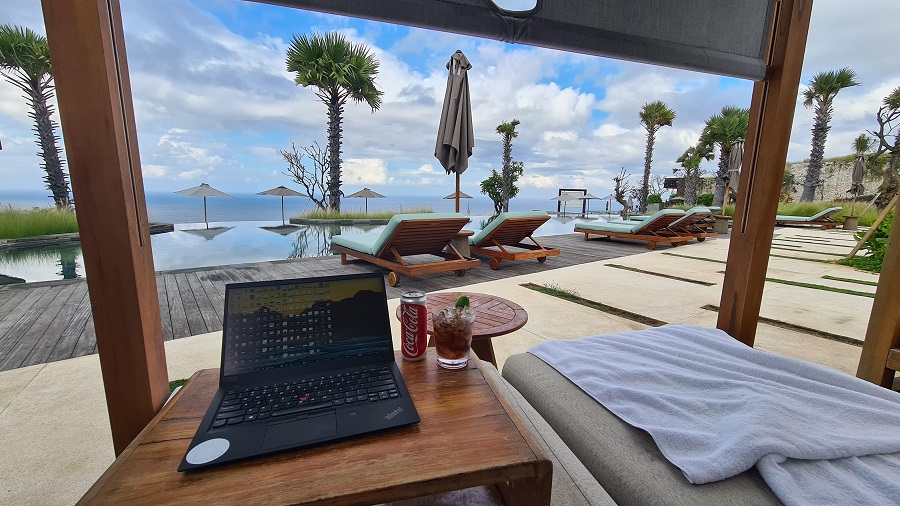
It is just a matter of time to see initiatives such as Zagreb Digital Nomad Week to bear fruit. This is exactly the right thing to do at the moment, this is what attracts people. Of course, as well as keeping the infrastructure up to date. I am talking about good Internet, encouaging short-term lets, and solving other challenges that nomads face, such as access to banking, access to healthcare, access to local services such as gyms, market opportunities for investments for nomads.
A great place to learn from is Estonia. Take a look at what they did with their e-residency programme, for example. And events. More and more events. Events bring people together. Affordable living and co-working spaces bring people together and helps to strengthen the community.
And of course, leadership. Every community needs a leader. To have it happen organically is not always easy. I think Tanja is setting an amazing example as a leader in Zagreb and Dubrovnik. With time, you will have more leaders, local people but also people from all over the world.
Social media is also very important, and digital nomad communities rely more on new forms of media. We see more social networks, more social media, platforms such as Instagram and Tik Tok. Croatia needs to be there to put itself on the map, providing simple information on where to go, where to stay and what to do, tailored for digital nomads.
But really overall I think Croatia is putting in the right effort, it has the right leaders, including the support of the government which is incredible to see. All this together will make Croatia a hot spot in the next couple of years.
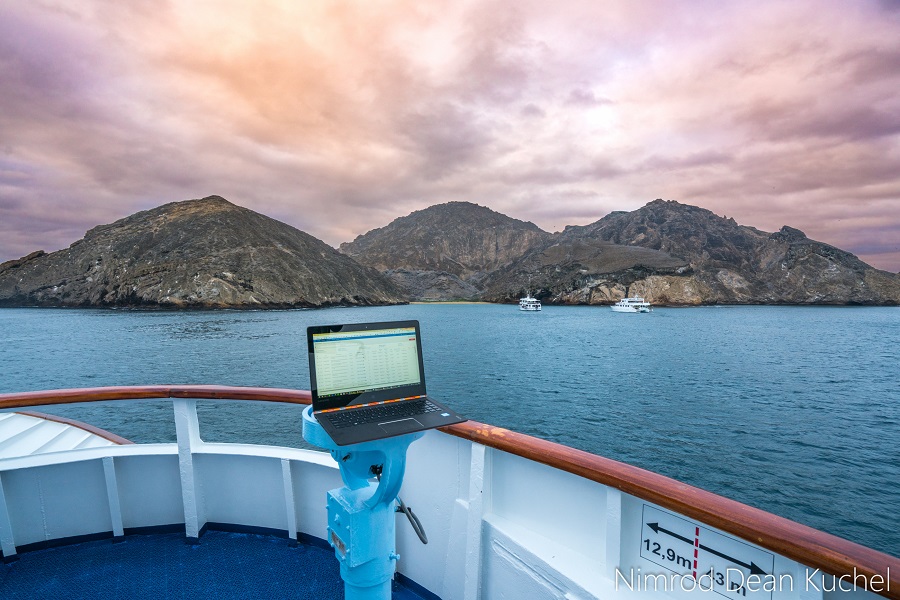
7. Tell us about your involvement in Zagreb Digital Nomad Week, and why did you decide to come?
It was an easy decision to come. I have been following Croatia and Tanja for some time. I am happy to take part in every event that helps to grow the community. I am very happy to play a small part in helping all this grow, and I look forward to meeting old friends, making new friends, and taking part in this great event. I will be speaking about community building.
Meet Friday’s keynote speaker, Albert Cañigueral, one of the Dubrovnik nomads-in-residence, and recently appointed to lead the Catalan Government’s Transparency and Open Data division. Albert will be focusing on the topic of the day, the future of work.
Meet tomorrow’s host – BIZkoshnica, Zagreb Coworking Since 2015: Mirela Marovic Omerzu Interview.
Tourist Board Director Martina Bienenfeld on Zagreb Digital Nomad Week, Ryanair, Tourism in Pandemic
For the latest news and features od digital nomads in Croatia, check out the dedicated TCN section.

